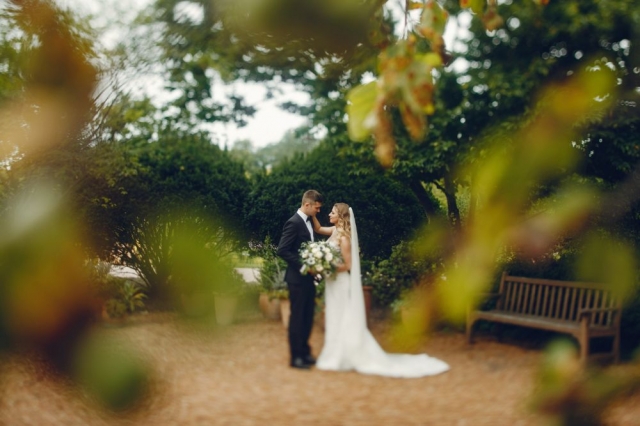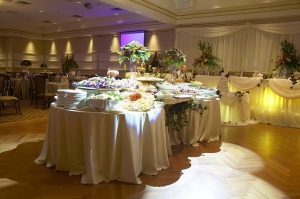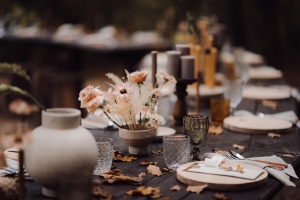Your wedding day will be filled with moments you'll want to remember forever. From the nervous excitement of getting ready to the joy of walking down the aisle, every detail deserves to be captured in a way that reflects your story. Choosing the right wedding photographer isn't just about finding someone with a camera; it's about finding a professional who understands your vision and can bring it to life.
This guide will walk you through the essential steps, insights, and questions that will help you choose the wedding photographer who feels like the perfect match.
Why Your Photographer Choice Matters
Photos will be one of the few tangible reminders of your wedding day. Long after the cake is eaten and the flowers fade, your pictures remain. That's why investing time and thought into this choice is so important. A skilled Lynchburg wedding photographer captures emotions and interactions you may not notice, translates your unique style into visual storytelling, and provides peace of mind on a day that can feel overwhelming. More than anything, they give you an album that feels timeless and personal, not generic.
Step 1: Define Your Photography Style
Before you even look at photographers, it's essential to figure out what kind of images you're drawn to. Photography styles vary widely, and knowing your preference will narrow down your choices.
Traditional photography focuses on posed images and group shots, giving you a timeless look. Documentary or photojournalistic styles prioritize candid moments with minimal posing. If you want something polished and dramatic, fine art or editorial approaches might appeal to you, while moody or filmic styles emphasize shadows, atmosphere, and rich tones. Light and airy photography is another popular choice, offering bright, soft, romantic images with pastel tones.
To help you decide, browse wedding blogs, Pinterest boards, or Instagram feeds. Save images that resonate with you and then look for patterns. If most of your selections lean toward dreamy, light-filled shots, you'll want a photographer who specializes in that. If your collection is full of dramatic black-and-white portraits, then someone with an editorial eye is likely a better fit.
Step 2: Set a Realistic Budget
Wedding photography is a significant investment, and prices vary depending on experience, coverage hours, and what's included in the package. Established photographers typically charge more, especially if their reputation is strong in your area. Full-day coverage will cost more than partial-day coverage, and adding a second shooter also increases the fee. Albums, canvases, and custom prints may be included or charged separately, and travel expenses can apply for destination weddings.
When planning, consider allocating around 10 to 15 percent of your total wedding budget to photography. While it may feel tempting to save here, remember that these photos will outlast most other elements of your day.
Step 3: Start Researching Photographers
Once you know your style and budget, it's time to begin your search. You can start by exploring wedding directories and blogs, browsing social media platforms, or asking for recommendations from friends and family. Vendor referrals can also be valuable since wedding professionals often know each other.
During this process, keep an eye out for potential red flags. Inconsistent style across a portfolio, limited examples of full weddings, or vague details about packages can be warning signs. Slow or unprofessional communication is another indicator to proceed with caution.
Step 4: Review Portfolios in Detail
A photographer's portfolio is your best tool for evaluating their skill and consistency. Don't just scroll through Instagram highlights; ask to see a full wedding gallery. That's where you'll notice whether they can tell a complete story from start to finish.
Look closely at how they handle different lighting conditions, from bright outdoor ceremonies to dimly lit receptions. Notice whether candid shots feel natural or forced, and whether portraits have the style you're hoping for. If a portfolio consistently makes you feel something, that's a sign you may have found a strong contender.
Step 5: Meet the Photographer
Photography isn't only about technical skill; it's also about personal connection. You'll spend a large portion of your wedding day with this person, so comfort and trust are crucial.
When you meet, ask questions that help you understand both their style and their professionalism. Inquire about what their packages include, how they approach directing couples during portraits, whether they work with a second shooter, and how they handle unexpected challenges like bad weather or tight timelines.
Just as importantly, pay attention to how they make you feel. A good photographer listens to your vision, explains their approach clearly, and creates an atmosphere where you feel comfortable expressing yourself. If they dominate the conversation or dismiss your ideas, that's a red flag.
Step 6: Check Reviews and References
Reviews can provide a glimpse into what it's really like to work with a photographer. Google reviews, social media comments, and wedding forums often highlight consistent themes. Past clients may talk about how comfortable they felt, whether the images were delivered on time, and how the photographer handled challenges.
If you can, ask for direct references. A quick chat with a past client may give you more candid feedback than what's written online.
Step 7: Understand the Contract
A contract protects both you and the photographer, so take time to read it carefully. Key areas to focus on include the number of hours of coverage, the delivery timeline for edited images, and the policies around illness or emergencies. Make sure you understand the payment schedule and cancellation terms. Also, clarify the rights to your photos. Some contracts allow you to print images anywhere, while others require ordering through the photographer.
Step 8: Consider Engagement Sessions
Engagement shoots are more than just an opportunity to collect extra photos. They help you and your photographer get comfortable working together. You'll see how they direct and communicate, while they'll learn how you respond to the camera. By the time your wedding day arrives, you'll already feel at ease, which results in more natural photographs.
An engagement session also gives you photos that can be used for save-the-dates, invitations, or even décor at the wedding.
Step 9: Think About Delivery and Products
Not all photographers deliver their work in the same way, so it's important to clarify what's included. Many provide online galleries that make sharing easy, while others also offer USB drives or printed collections. Custom albums or wall art may be available as part of a package or as add-ons.
Discuss your expectations upfront. If you want a printed album to showcase on your coffee table, ensure that option is available. If you prefer only digital files, confirm that high-resolution images are included.
Step 10: Trust Your Instincts
After comparing styles, prices, and packages, the final step often comes down to your gut. Ask yourself if this photographer truly understands your vision, if their work consistently moves you, and if you can imagine spending your wedding day with them by your side. Sometimes the best choice isn't the most decorated photographer, but the one who makes you feel the most at ease.
Matching a Photographer to Your Vision
When explaining your vision, be as specific as possible. Instead of saying you want “romantic photos,” describe the type of lighting, setting, or feeling you're hoping for. Share examples, but remain open to the photographer's creative input. While it's important to have a vision, the best results often come from collaboration. A professional may see angles, moments, or opportunities you never imagined.
Common Mistakes Couples Make
Couples sometimes choose a photographer based solely on price, overlooking whether their style aligns. Others forget to ask for a complete wedding gallery, relying only on highlight reels. Waiting too long to book can also limit your options since popular photographers often get reserved a year or more in advance. Ignoring contract details or underestimating the importance of personality fit are also common mistakes.
Final Thoughts
Your wedding photographer isn't just another vendor — they are the storyteller of your day. By defining your style, setting a realistic budget, researching thoroughly, and meeting with photographers to gauge connection, you'll increase your chances of finding someone who aligns perfectly with your vision.
The right choice will be someone who listens, understands, and translates your love story into images that feel personal and enduring. Whether you're looking at an established professional or a talented wedding photographer, take the time to choose carefully. These photos will become part of your family history, reminding you of one of the most meaningful days of your life.






